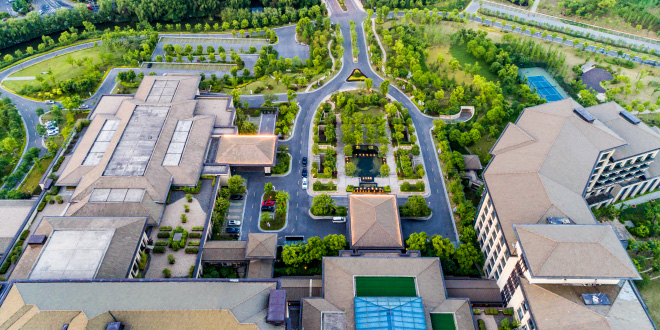Discover prime apartment complexes for sale in the US. Our 2025 guide covers buying, financing, due diligence, and maximizing ROI in multi-family real estate. Start your investment journey today!
The Ultimate Guide to Finding & Buying Apartment Complexes for Sale in the US
Are you contemplating a significant step into the world of real estate investment? If so, exploring apartment complexes for sale across the United States might be precisely the opportunity you’re searching for. Multi-family properties, from duplexes to sprawling apartment communities, offer a distinct pathway to wealth creation through steady income and long-term appreciation. As of mid-2025, the demand for rental housing remains robust in many parts of the country, making these assets particularly appealing. This comprehensive guide will walk you through everything you need to know about identifying, evaluating, and ultimately acquiring an apartment complex, ensuring you’re well-equipped for a successful investment journey.
Table of Contents
Why Invest in Apartment Complexes for Sale? The Allure of Multi-Family Real Estate
Investing in apartment complexes isn’t just about buying a building; it’s about acquiring a business that generates consistent cash flow and holds significant growth potential. Unlike single-family homes, multi-family properties offer distinct advantages that appeal to savvy investors.
Steady Income Stream and Cash Flow
Perhaps the most compelling reason to consider apartment complexes for sale is the consistent rental income they provide. With multiple tenants, the risk of vacancy impact is significantly reduced compared to a single-unit property. If one tenant moves out, you still have income from the others, which helps cover expenses and maintain positive cash flow. This distributed risk makes multi-family investments inherently more stable in terms of income generation.
Long-Term Appreciation Potential
Historically, real estate has proven to be a reliable asset for long-term appreciation. As populations grow and urban centers expand, the demand for housing tends to increase, driving property values upwards. Apartment complexes, being larger and often located in strategic areas, are well-positioned to benefit from this upward trend. Furthermore, you’re not just waiting for market appreciation; proactive property management and strategic renovations can significantly boost the value of your asset over time.
Diversification and Scalability in Your Portfolio
Investing in apartment complexes for sale allows you to diversify your real estate holdings. Instead of putting all your eggs in one basket (a single home), you’re spreading your investment across multiple units. Moreover, once you’ve successfully managed one apartment complex, scaling up your portfolio becomes a more natural progression. You can apply the same learned strategies and systems to acquire additional properties, accelerating your growth in the real estate market. This scalability makes multi-family investing attractive for those looking to build substantial real estate wealth.
Key Considerations Before Buying an Apartment Complex
The decision to buy an apartment complex is a significant one, requiring careful consideration and thorough preparation. It’s not simply a transaction; it’s stepping into a new business venture.
Financial Preparation: Financing Your Investment
Securing financing for an apartment complex differs significantly from a residential mortgage. You’ll generally be looking at commercial loans, which have different terms, interest rates, and down payment requirements.
- Commercial Mortgages: These are the most common route. Lenders assess not just your creditworthiness but also the income-generating potential of the property itself.
- SBA Loans: For smaller apartment complexes (typically up to 50% owner-occupied), Small Business Administration (SBA) loans like the SBA 7(a) or 504 might be an option, often with more favorable terms for qualified borrowers.
- Private Lenders and Syndication: Depending on the size and complexity of the deal, you might explore private lenders or even crowdfunding/syndication, pooling capital with other investors.
- Due Diligence on Loan Terms: Pay close attention to interest rates (fixed vs. adjustable), loan-to-value ratios, amortization periods, and any prepayment penalties. A slight difference in interest rates can significantly impact your cash flow over the loan’s lifetime.
Market Research: Where to Look for Opportunity
Location, location, location remains paramount. The success of your apartment complex hinges heavily on the market it operates within.
- Population Growth & Job Markets: Look for areas experiencing steady population growth and robust job creation. Cities like Austin, Texas; Nashville, Tennessee; and Raleigh, North Carolina, have seen strong demographic shifts and economic expansion in recent years, making them attractive for rental property investment.
- Rental Demand & Vacancy Rates: Research local rental demand and current vacancy rates. A low vacancy rate indicates strong demand, which can translate to higher rental income and fewer tenant turnovers.
- Average Rental Rates: Understand the prevailing rental rates for comparable units in the area. This helps you project potential income accurately.
- Future Development Plans: Investigate any upcoming infrastructure projects, commercial developments, or zoning changes that could impact property values and rental demand in the future. A burgeoning downtown area or a new corporate campus can dramatically enhance a property’s prospects.
Due Diligence: What to Scrutinize
This is arguably the most critical phase. Thorough due diligence can uncover potential issues and protect your investment.
- Financial Records: Demand detailed financial statements (rent rolls, operating expenses, utility bills, tax returns) for at least the past two to three years. Verify all income and expenses.
- Lease Agreements: Review all tenant leases. Understand the terms, renewal dates, security deposit amounts, and any special clauses.
- Property Condition Assessment: Hire qualified inspectors to assess the structural integrity, roof, HVAC systems, plumbing, electrical, and other critical components. Budget for immediate repairs and future capital expenditures.
- Environmental Reports: Conduct environmental assessments to check for potential hazards like asbestos, lead paint, or underground storage tanks.
- Legal Review: Have an attorney review all purchase agreements, title reports, and any existing litigation or code violations. Understand local landlord-tenant laws and zoning regulations.
- Insurance Costs: Obtain quotes for property insurance, liability insurance, and potentially flood insurance, as these can be significant ongoing expenses.
The Buying Process: From Search to Closing
Once you’ve done your homework and are ready to proceed, the buying process for apartment complexes for sale follows a structured path.
Finding Apartment Complexes for Sale
Knowing where to look is half the battle.
- Commercial Real Estate Brokers: These professionals specialize in multi-family properties and often have access to off-market deals. They can be invaluable in identifying suitable properties and guiding you through negotiations. Consider working with experienced professionals who understand the nuances of commercial property acquisition, such as those at NexMove, who can help streamline your search for investment opportunities.
- Online Marketplaces: Websites like LoopNet, CoStar, CREXi, and smaller local commercial real estate listing sites are excellent resources.
- Networking: Connect with other investors, property managers, and real estate attorneys. Word-of-mouth and direct outreach can lead to unique opportunities.
- Driving for Dollars: Physically scouting areas you’re interested in can reveal properties not actively listed.
Making an Offer and Negotiation
Presenting a compelling offer requires strategy and market knowledge.
- Letter of Intent (LOI): Often, the process begins with an LOI, a non-binding agreement outlining the proposed terms of the deal.
- Purchase Agreement: Once an LOI is accepted, a formal purchase agreement is drafted, detailing all terms and conditions, contingencies (like financing, inspections, and due diligence), and timelines.
- Negotiation: Be prepared to negotiate on price, closing costs, and contingencies. Your due diligence findings will provide leverage.
- Contingencies are Your Friends: Ensure your offer includes robust contingencies that allow you to walk away if significant issues are discovered during due diligence without losing your earnest money deposit.
Closing the Deal
The closing process for an apartment complex is similar to other real estate transactions but with added complexities due to the commercial nature of the property. This involves:
- Finalizing Financing: Ensuring all loan conditions are met.
- Title Search and Insurance: Confirming clear title and obtaining title insurance.
- Prorations: Adjusting for rents, property taxes, and other expenses between buyer and seller as of the closing date.
- Recording Deeds: Officially transferring ownership.
Managing Your Apartment Complex Investment
Acquiring an apartment complex is just the beginning. Effective management is crucial for maximizing your return on investment and ensuring the long-term success of your property.
Property Management: DIY vs. Professional
One of the biggest decisions you’ll face is how to manage the property.
- Do-It-Yourself (DIY): This can save on management fees but requires significant time, effort, and expertise in tenant relations, maintenance, accounting, and legal compliance. It’s often feasible for smaller properties or experienced investors.
- Professional Property Management: Hiring a professional management company is a popular choice for larger complexes or out-of-state investors. They handle everything from marketing vacancies and tenant screening to rent collection, maintenance, and legal issues. While they charge fees (typically a percentage of gross rents), they can save you time, reduce stress, and often improve efficiency.
Tenant Relations and Retention
Happy tenants are long-term tenants, which reduces vacancy costs and turnover expenses.
- Effective Communication: Be responsive to tenant concerns and maintain clear lines of communication.
- Fair Practices: Adhere to fair housing laws and maintain transparency in all dealings.
- Maintenance: Promptly address maintenance requests to ensure tenant satisfaction.
- Community Building: For larger complexes, consider fostering a sense of community through events or common area improvements.
Maintenance and Capital Expenditures
Maintaining an apartment complex is an ongoing process.
- Routine Maintenance: Budget for regular tasks like landscaping, cleaning common areas, and minor repairs.
- Preventative Maintenance: Implement a schedule for HVAC servicing, roof inspections, and plumbing checks to prevent larger issues down the line.
- Capital Expenditures (CapEx): These are significant expenses for major repairs or upgrades (e.g., roof replacement, new HVAC systems, parking lot resurfacing). Always budget for these, as they are essential for preserving and enhancing the property’s value. A strong reserve fund is crucial.
Frequently Asked Questions
What defines an “apartment complex for sale” in the US? An apartment complex typically refers to a multi-family property with multiple rental units, often in a single building or a series of buildings on one parcel of land. It can range from a duplex or triplex to large multi-story buildings with dozens or hundreds of units.
How do I calculate the potential return on investment (ROI) for an apartment complex? ROI for an apartment complex is calculated by considering the net operating income (NOI) against the total cash invested. NOI is your gross rental income minus operating expenses (excluding mortgage payments). You’ll also look at metrics like capitalization rate (Cap Rate), cash-on-cash return, and internal rate of return (IRR) to assess profitability.
What are common pitfalls when buying apartment complexes for sale? Common pitfalls include inadequate due diligence leading to unforeseen repair costs, underestimating operating expenses, overestimating rental income, poor property management, and not understanding the local market’s specific dynamics. Skipping professional inspections or legal review can also lead to costly mistakes.
Are there specific cities in the US known for good apartment complex investment opportunities in 2025? While local market conditions can change, cities that consistently show strong growth indicators (job growth, population influx, affordability) often present good opportunities. Examples might include growing tech hubs in the Sun Belt, or cities with stable job markets and strong university populations. Always conduct your own in-depth local market research.
How long does it typically take to close on an apartment complex acquisition? The timeline can vary significantly based on the complexity of the deal, financing type, and thoroughness of due diligence. Generally, it can take anywhere from 60 to 120 days, or even longer for very large or complex transactions, much longer than a typical residential home purchase.
Conclusion
The pursuit of apartment complexes for sale represents a compelling avenue for those looking to build substantial wealth through real estate. This specialized segment of the market offers the potential for strong cash flow, long-term appreciation, and significant portfolio scalability. However, success hinges on meticulous financial preparation, in-depth market research, rigorous due diligence, and ultimately, effective property management. By understanding these critical facets and approaching your investment with a strategic mindset, you’ll be well-positioned to capitalize on the enduring demand for rental housing across the United States. Your journey into multi-family real estate is an exciting one, full of potential rewards for the informed and prepared investor.
Take the Next Step
Ready to delve deeper into the world of multi-family real estate or need expert guidance on finding the right apartment complexes for sale? For more information, visit https://nexmove.us/. The dedicated team at NexMove specializes in commercial real estate and can provide invaluable insights, market analysis, and support to help you navigate the complexities of acquiring and managing your next apartment complex investment in the US. Connect with NexMove today to turn your investment goals into a reality.
 NexMove Home & Investment Guide Find Your Perfect Property, Invest Wisely.
NexMove Home & Investment Guide Find Your Perfect Property, Invest Wisely.





